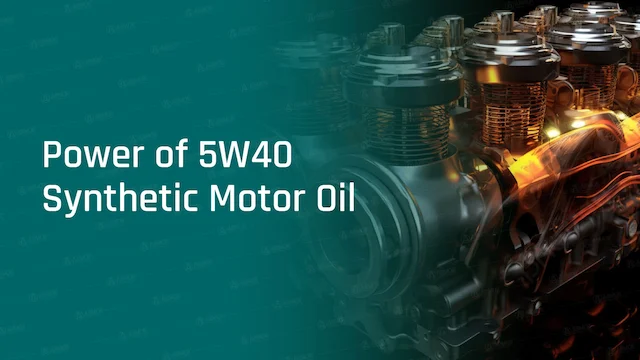
Importance of Lubricants in Wind Turbines
Ensuring Smooth Operations
Minimizing Friction and Wear
Using oil for wind turbines is crucial in minimizing friction and wear within the system. High-quality wind turbine oil reduces the contact stress between moving parts, which helps in maintaining optimal performance. The right lubricant extends the lifespan of critical components, ensuring they function smoothly even under high loads and varying speeds.
Reducing Downtime
Regular use of specialized wind turbine oil plays a vital role in reducing operational downtime. By preventing excessive wear and tear, lubricants reduce the frequency of maintenance stops, allowing turbines to operate more efficiently and consistently. This not only boosts energy production but also maximizes the overall output of the wind energy system.
Optimizing Energy Output
Efficient lubrication directly impacts the energy output of wind turbines. Properly lubricated systems run more smoothly, reducing mechanical losses and enhancing the conversion of wind energy into electrical power. This optimization is essential for achieving the best possible performance from wind turbines.
Protecting Critical Components
Gearbox Protection
The gearbox is one of the most critical components in a wind turbine, and its protection is paramount. High-quality wind turbine oil provides the necessary lubrication to protect the gears from extreme pressures and loads. This not only extends the life of the gearbox but also ensures reliable operation.
Bearing Longevity
Bearings in wind turbines face constant stress and load. The use of appropriate wind turbine oil helps in maintaining the integrity of bearings, reducing the risk of failures. Proper lubrication ensures that bearings can handle the operational demands, thereby prolonging their service life.
Seal Integrity
Seals in wind turbines prevent the leakage of lubricants and keep contaminants out. The right oil helps maintain the elasticity and effectiveness of seals. This prevents oil leakage, ensuring that the lubrication system operates efficiently and protecting the internal components from external contaminants.
Enhancing Turbine Lifespan
Preventing Corrosion
Lubricants play a significant role in preventing corrosion within wind turbines. Specially formulated wind turbine oil includes additives that protect metal surfaces from rust and corrosion, which is especially important in harsh environmental conditions.
Avoiding Component Fatigue
Lubricants help in reducing the mechanical stress on wind turbine components, preventing fatigue and premature failure. By maintaining a consistent lubrication film, the oil absorbs shocks and disperses loads, thereby extending the life of various parts.
Reducing Maintenance Frequency
With the use of high-quality wind turbine oil, the frequency of maintenance can be significantly reduced. This not only lowers operational costs but also increases the availability and efficiency of wind turbines. Regular oil checks and timely replacements are essential for maintaining the lubrication quality and ensuring long-term performance.
Types of Lubricants Used in Wind Turbines
Gear Oils
Synthetic vs. Mineral Oils
When choosing oil for wind turbines, it’s essential to understand the differences between synthetic and mineral oils. Synthetic oils generally offer better performance under extreme temperatures and higher loads. They provide superior protection and can extend the service intervals compared to mineral oils. However, mineral oils can be more cost-effective and are suitable for less demanding applications.
Viscosity and Performance
The viscosity of wind turbine oil plays a crucial role in its performance. Oils with the correct viscosity ensure a stable lubricating film that protects gears from metal-to-metal contact. This is particularly important for maintaining efficiency and prolonging the life of the gearbox. Selecting the right viscosity helps in reducing friction and wear, optimizing the overall performance of the turbine.
Impact on Gear Efficiency
High-quality gear oils enhance the efficiency of wind turbines by minimizing power losses within the gearbox. Proper lubrication reduces friction and wear, allowing the gears to transmit power more effectively. This impacts in improved energy output and reduced maintenance needs, ultimately leading to more cost-effective turbine operations.
Greases
Applications in Bearings
Greases are essential for lubricating bearings in wind turbines. They provide a thick, adhesive film that stays in place, even under high loads and varying temperatures. This is crucial for components such as the main shaft and blade bearings, which experience constant motion and stress.
High-Temperature Performance
Bearings in wind turbines often operate at high temperatures. The right grease must withstand these conditions without breaking down or losing its lubricating properties. High-temperature greases maintain their consistency and provide reliable protection, ensuring the longevity of the bearings.
Consistency and Stability
The consistency of grease is vital for effective lubrication. Greases with the right consistency stay in place, providing continuous protection to the bearings. Stability ensures that the grease does not degrade over time, maintaining its performance throughout its service life. This reduces the need for frequent re-lubrication and minimizes maintenance efforts.
Hydraulic Fluids
Role in Pitch Control Systems
Hydraulic fluids are crucial for the pitch control systems in wind turbines. These systems adjust the angle of the airfoils for wind turbines, optimizing the turbine’s efficiency and power output. Using the right hydraulic fluid ensures smooth and responsive pitch adjustments, critical for maintaining optimal performance in varying wind conditions.
Temperature Sensitivity
Hydraulic fluids used in wind turbines must perform well across a wide range of temperatures. Fluids that are too thick in cold conditions or too thin in hot conditions can compromise the performance of the pitch control system. Selecting fluids with the appropriate temperature sensitivity ensures reliable operation under all environmental conditions.
Fluid Compatibility Issues
Compatibility between hydraulic fluids and other system components is essential to avoid performance issues and potential damage. Fluids must be compatible with seals, hoses, and other materials used in the system. This compatibility ensures that the hydraulic system operates smoothly and reduces the risk of leaks or failures.
Factors Affecting Lubricant Performance
Environmental Conditions
Temperature Extremes
Wind turbines operate in diverse environments, from scorching deserts to icy tundras. Oil for wind turbines must perform consistently across these temperature extremes. High-quality lubricants maintain their viscosity and protective qualities, ensuring smooth operation regardless of the ambient temperature. Choosing oils designed for broad temperature ranges is critical for maintaining efficiency and preventing component damage.
Humidity and Moisture
High humidity and moisture levels can compromise wind turbine oil by promoting corrosion and contamination. Lubricants with strong anti-corrosion properties and moisture resistance are essential in such environments. This ensures that internal components remain protected, reducing wear and extending the turbine’s operational life.
Dust and Contaminants
Wind turbines in dusty environments face the risk of oil contamination, which can lead to increased wear and decreased performance. Using oils with robust filtration and cleaning capabilities helps mitigate these issues. Regular oil changes and maintenance checks are also vital to ensure that dust and contaminants do not compromise the lubricant’s effectiveness.
Operating Load and Speed
Impact of High Loads
Wind turbines often operate under high loads, especially during strong winds. Wind turbine oil must provide adequate protection against these intense forces. Oils with high film strength and load-carrying capacity are necessary to prevent metal-to-metal contact and reduce wear, ensuring the longevity and reliability of the turbine’s components.
Variable Speed Operations
Wind turbines do not operate at a constant speed; they adjust according to wind conditions. This variability places additional stress on the lubricants. Oils that can handle these changing speeds without losing their protective qualities are crucial. Such lubricants ensure consistent performance and protection under varying operational conditions.
Stress on Lubricants
The continuous operation of wind turbines puts constant stress on lubricants. Over time, this stress can degrade the oil, reducing its effectiveness. Using high-quality oil for wind turbines that resists breakdown and maintains its properties over long periods is essential for reliable turbine performance.
Maintenance Practices
Regular Oil Analysis
Routine oil analysis helps monitor the condition of wind turbine oil. By analyzing oil samples, maintenance teams can detect contamination, wear particles, and other issues early. This proactive approach allows for timely interventions, preventing more severe problems and ensuring the turbine continues to operate efficiently.
Timely Oil Changes
Changing the oil at recommended intervals is crucial for maintaining the performance and longevity of wind turbines. Knowing how much oil a wind turbine holds and ensuring it is replaced with high-quality oil helps prevent wear and tear. Adhering to a strict maintenance schedule reduces the risk of component failure and ensures optimal performance.
Lubricant Storage and Handling
Proper storage and handling of lubricants are vital to maintain their effectiveness. Oils should be stored in clean, dry environments to prevent contamination. Using the correct procedures for handling and applying lubricants ensures that wind turbine oil remains in optimal condition, providing the necessary protection and performance.
Conclusion
The role of lubricants in enhancing the performance and efficiency of wind turbines cannot be overstated. High-quality lubricants for wind energy systems are crucial for the performance, reducing friction, managing thermal and oxidation stability, protecting against corrosion and rust, resistance to chemical deterioration, protection against wear, and foaming and removing contaminants. As the demand for renewable energy continues to grow, investing in superior lubrication solutions will be essential for maintaining the efficiency and sustainability of wind turbines.



